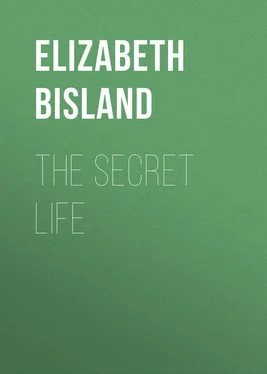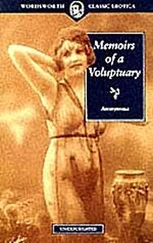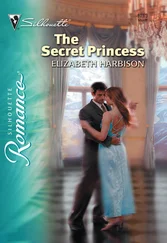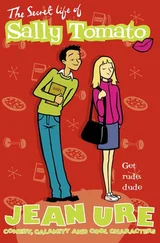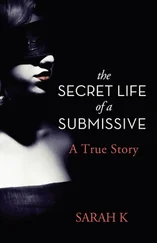Elizabeth Bisland - The Secret Life
Здесь есть возможность читать онлайн «Elizabeth Bisland - The Secret Life» — ознакомительный отрывок электронной книги совершенно бесплатно, а после прочтения отрывка купить полную версию. В некоторых случаях можно слушать аудио, скачать через торрент в формате fb2 и присутствует краткое содержание. Жанр: foreign_antique, foreign_prose, на английском языке. Описание произведения, (предисловие) а так же отзывы посетителей доступны на портале библиотеки ЛибКат.
- Название:The Secret Life
- Автор:
- Жанр:
- Год:неизвестен
- ISBN:нет данных
- Рейтинг книги:5 / 5. Голосов: 1
-
Избранное:Добавить в избранное
- Отзывы:
-
Ваша оценка:
- 100
- 1
- 2
- 3
- 4
- 5
The Secret Life: краткое содержание, описание и аннотация
Предлагаем к чтению аннотацию, описание, краткое содержание или предисловие (зависит от того, что написал сам автор книги «The Secret Life»). Если вы не нашли необходимую информацию о книге — напишите в комментариях, мы постараемся отыскать её.
The Secret Life — читать онлайн ознакомительный отрывок
Ниже представлен текст книги, разбитый по страницам. Система сохранения места последней прочитанной страницы, позволяет с удобством читать онлайн бесплатно книгу «The Secret Life», без необходимости каждый раз заново искать на чём Вы остановились. Поставьте закладку, и сможете в любой момент перейти на страницу, на которой закончили чтение.
Интервал:
Закладка:
She was growing much encouraged about her own work. All the other ants in the field wondered at and admired it, and as one could nearly see out above the grasses by standing upon her hill on tiptoe, the happy insect began to dream of immortality.
By this time, too, the young lark had grown feathers, and one morning he stumbled out of the nest, fluttered a moment to try his wings, and suddenly, bursting into a flood of song, soared upward into the sunlit blue.
The Ant fell to the earth, breathless and paralyzed, but in a moment, stifling her pain and despair, she rose up and began, from mere habit, fitting more grains of sand into her unfinished hill.
A Poet walked in the field that day, meditating some verses upon the divine gift of genius. He cried aloud with joy at the lark's song, and while he gazed upward stumbled over the Ant's hill and demolished it, but in his note-book he wrote:
"Oh, miracle of Genius, that lifts the Sons of God on golden pinions to the gates of heaven, while the dull myriads toil futilely at Babels below."
January 29.
The Döppelganger
I suppose that everyone who has reached maturity has been aware of a sense of a dual personality – of a something within him that is a me and a not me ; of opposing influences that puzzle his judgment, weaken his resolves, and warp his intention. These natures he finds engaged in an eternal conflict which sways him from the course he would instinctively follow, and draws him along lines of thought and conduct satisfying to neither side of his being, and achieving only a helpless compromise between the two.
"To be?" – "Or not to be?" contend the two at every crossing of the tangled meshes of existence, and neither disputant is ever convinced by the other's logic.
"To sleep" – says one. "Perchance to dream," replies the other coldly; and so gives pause to Hamlet's swift intentions.
Which is the real man? The Hamlet whose soul lusts for sudden brute revenge, whose promptings are the instinctive play of the natural man, or that frigid censor who checks the impulses of the first speaker and chills him with cold reasons and balancings of right and wrong, so that the sword falls from his nerveless hand at the very moment of opportunity? Or after all, is the real man the one whose actions are a continual endeavour to steer between the two promptings; the Hamlet whose doings are not in direct answer to either voice – are but furious and confused outbursts of indecision?
If it were at all possible to decide between the two, one would incline to think that the second voice, that chilling critic, was another self, alien to us, though entrenched in the very depths of the soul – was the not me , in everlasting opposition to the me – was the past warring with the present.
The warm, impulsive, blundering me we know, but who is that other? Whence comes this double, this alter ego , this bosom's lord, and strange, nameless ghost who haunts the house of life? How many thousand deaths have we died to give him life? For he is inexpressibly aged, infinitely sophisticated; and while the me still crowns its locks with youth's golden illusions, he is grey with knowledge and hoary with disenchantment. Though a part of our most intimate selves, he is not at one with us. He sympathizes with none of our enthusiasms, is tempted by none of our sins… Sins!.. what should he do eating forbidden fruit who is all compounded of the knowledge of good and evil?
"Ye shall be as gods, having eaten of that tree" – and like a god he sits in the dusk of the soul's seat, knowing the past, predicating the future, calmly beholding the fulfilling of our destiny. And yet is his grim wisdom of no avail, since – a shadowy Cassandra – he warns in vain. His deity-ship is of no more worth than that of the Olympian heavens, which might punish or reward, but could not divert the decrees of a power higher than itself. It is indeed the fate of all gods to have their creations caught from between their shaping hands by the blind, fumbling fingers with the shears. Gods may teach; may command; may ban or bless, but the being once made is Fate's creature, not theirs.
This cynical, impotent döppelganger goes by many names. His Christian cognomen is Conscience, and his voice is raised to exalt Christian tenets of clean living and high thinking.
"Thou shalt surely die," he declaims from the altar where he wears with cheerful indifference the livery of a faith in which he has no part, and we walk contentedly in the path he designates, flattering ourselves upon being upheld and guided by the voice of omnipotent truth, until passion trips our heels with some hidden snare, and, rolling headlong in the mire, we lift our stained faces in astonishment to behold that calm-lidded countenance all unstirred by our wild mishap. He foresaw, but he was helpless to prevent, nor does he greatly care, since he also knows that age after age every reincarnation of the spirit must be tempted anew by the ever-renewed, ever-lustful, unalterable flesh.
Weissman diverts himself and indulges the Teutonic weakness for word-building by naming this double self the "germ-plasm" – that immortal, eternal seed of life that links the generations in an unbroken chain; changing and developing only through the unreckonable processes of time, and taking heed not at all of the mere passing accidents of fleeting avatars.
Why should not this germ-plasm, this eternal ghost, be infinitely sophisticated? What surprises can its mere momentary envelope contrive for a consciousness as old as the moon? If temptations seduce the young flesh, though the old, old soul declares with scorn that teeth are set on edge by the eating of sour grapes, it is not surprised at all when the body persists in its will to seize upon the fruit of its desire, having seen in everyone of a myriad generations the same obstinacy and weakness of the flesh, which learns little and very hardly from the spirit.
Now and again – in his moments of exalted seriousness – man listens to this ancient voice of the spirit breathing the accumulated experience of time, and then it imposes upon him the ripened wisdom of its long retrospect of the generations, and man creates religions – by which he does not square his conduct – or philosophies – whose bit he immediately takes between his teeth. But for the most part he stops his ears to the soul's stern, sad preaching with the thick wax of sentimentalism, and that undying determination that life shall be not what it is, but what he wishes it to be – and so stumbles along, through ever-renewed pangs and tragedies, after a mirage in the hard desert of existence, to whose stones and flints, despite his bruises, he will not turn his eyes. And well it is for us that upon many the mantle of flesh lies so warm and thick that this ghost called consciousness of self cannot chill their blood with his dank wisdom breathed from out a world of graves. In the hearts of such as these all the sweet illusions of existence came to full and natural bloom. To their lusty egoism life has all the exhilaration and freshness of a new and special creation.
Far otherwise is it with the haunted man, whose dwelling is blighted by that cold presence with its terrible memory. Forever echoes through his chambers the cry that hope will be unfulfilled, that love will die, the morning fade, that what has been will be again and forever again; that the waters of life will climb the shore only to crawl back again into the blind deeps of eternity; that the unit is forever lost in the eternal ebb and flux of matter. Endeavour can find no footing in this profundity of experience. To all desire, all aspiration, the ghost says in a paralyzing whisper:
"Scipio, remember that thou art a man – that everything has been done even if thou doest it not – that everything will be done whether thou doest it or no… Where are the poems that were written in Baalbec? Where the pictures that were painted in Tadmor of the Wilderness? Are there fewer pictures and poems to-day because the men who made them are not? Who was prime minister to the bearded King of Babylon? Where is his fame?.. Ay, drink this cup if you will, but you know well the taste of it is not good at the bottom. You have drunk it a thousand thousand of times, and the taste was never good, and yet you will drink it a thousand times again, hoping always that it will be good."…
Читать дальшеИнтервал:
Закладка:
Похожие книги на «The Secret Life»
Представляем Вашему вниманию похожие книги на «The Secret Life» списком для выбора. Мы отобрали схожую по названию и смыслу литературу в надежде предоставить читателям больше вариантов отыскать новые, интересные, ещё непрочитанные произведения.
Обсуждение, отзывы о книге «The Secret Life» и просто собственные мнения читателей. Оставьте ваши комментарии, напишите, что Вы думаете о произведении, его смысле или главных героях. Укажите что конкретно понравилось, а что нет, и почему Вы так считаете.
